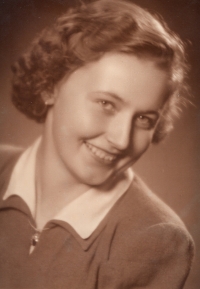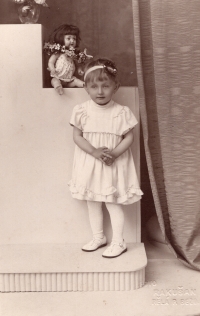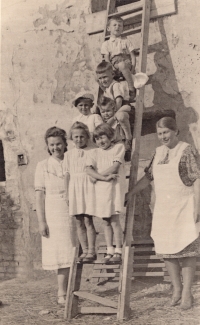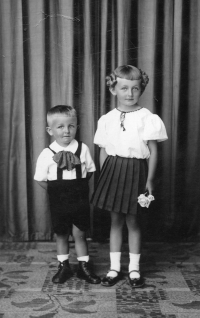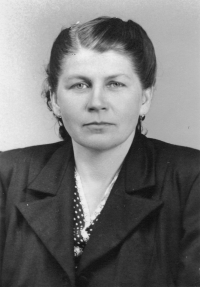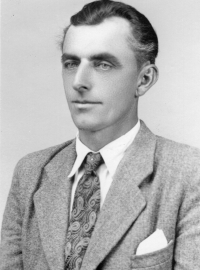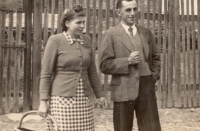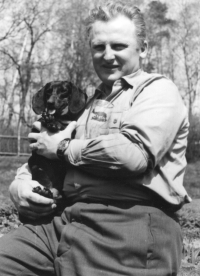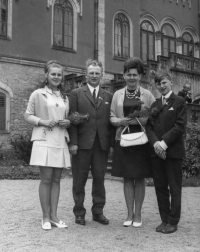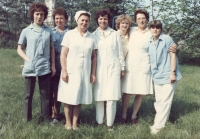Entering the Agricultural cooperative was a relief, but it drove a wedge between us and my uncle, the landowner

Stáhnout obrázek
Vlasta Bůtová, née Hamplová, was born on December 28, 1933, in Plužná near Bělá pod Bezdězem into a family of a small farmer. She started attending the local elementary school in 1939 and later attended the town school in Bělá pod Bezdězem. As farmers, her parents had to make compulsory deliveries, but they would secretly hide some farm crops and milk. After the communist coup in February 1948, the family joined a unified agricultural cooperative. As small farmers, they gained many advantages by joining, but they came into conflict with their uncle, who was previously the largest landowner in the village and owned thirty hectares of land. He blamed them for the fact that the Agricultural cooperative confiscated his fields and forced him to work for the state farm. In 1953, the witness married Otakar Bůta, who later worked for Military Forests and Estates in Stráž pod Ralskem. She spent the year 1968 in Mimoň, where she lived in fear of the Soviet troops. After returning from parental leave, she first worked in a garden centre in Mimoň, later in nurseries and several kindergartens. After retirement, she and her husband moved to Plužná, where her husband founded a hunting association and devoted himself to beekeeping. At the time of filming (2022), the witness lived in Hrádek nad Nisou.
